In Zambia, the prevalence rate of stunting is 40 percent (cited UNICEF). A further 9 percent of children have a low birth weight of less than 2.5 kg. These astounding facts are indicative of severe child and maternal malnutrition in the country, raising the urgency for immediate policies and actions towards improved nutrition.
A significant source of essential micronutrients and fats, fish, has now secured its place in discussions around food systems and nutrition security, even though its critical dietary value to the global poor is still not entirely addressed. The balance between sourcing from unmanaged stocks – the world’s last major source of wild food, and closing the cycle to produce food under more controlled farmed conditions emerged as a key issue. This is particularly the case as many countries have plans to modernise their aquaculture sectors in the face of declines in wild stocks and growing demand from urbanising populations.
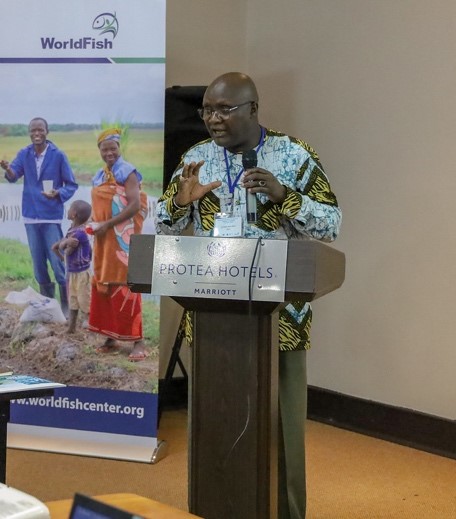
As the global workshop on nutrition-sensitive fish agri-food systems marked the closing of the IFAD-EU project “Nutrition-Sensitive Fish Agri-Food Systems in Zambia” there are a few questions still left unanswered. It was a buzzing event, where there was a need to talk about the future of nutrition in the country and region. A great meeting of nutrition and food systems researchers, academia, and policymakers gathered by one common goal: Eradicate hunger and improve diets by including fish and aquatic foods as part of local dishes.
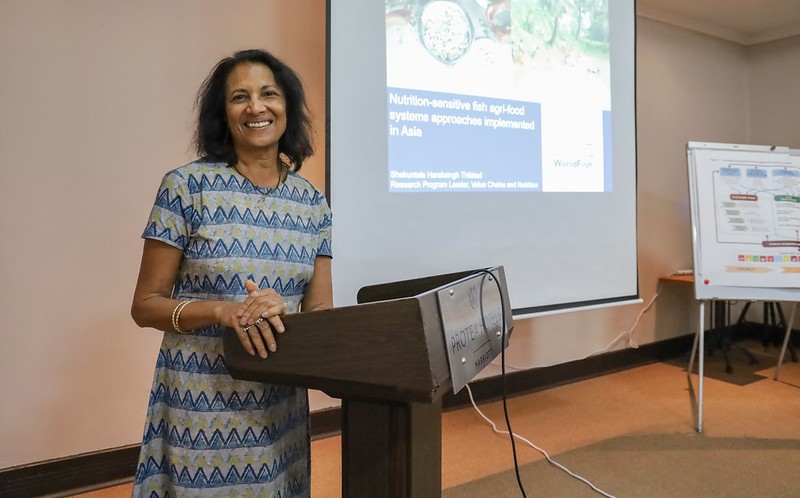
The workshop spread over two productive days of learning and discussion. The first day focused on “Nutrition-sensitive fish agri-food systems approaches in improving livelihoods and food and nutrition security of poor, rural households,” highlighting the importance of fisheries and aquaculture in enhancing food and nutrition security in Zambia. Key discussions revolved around the approaches to building nutrition-sensitive and resilient agri-food systems in Asia, and how Zambia can implement this to strengthen the livelihoods, food, and nutrition security for small-scale farmers in Africa.
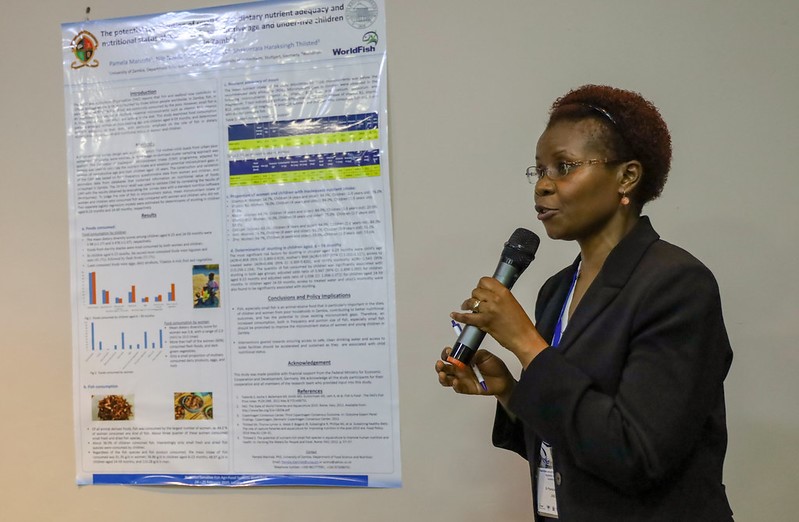
Significant realizations surfaced during the workshop, including memorable ground experiences and lessons learned from researchers' projects. Climate change and drought management are factors that directly affect nutrition-sensitive approaches such as pond polyculture. Other underlying factors uncovered during the workshop gender dynamics, the rising inequalities faced by youth and the day progressed to the highlight of the whole workshop, which was the session for policy design. This was a critical "quantum leap" moment for the participants, as opportunities and challenges for effective policy-making in sustainable agri-food systems and food and nutrition security were discussed in great detail. The second day was dedicated to forward-thinking approaches and strategies to scale up of food systems in Zambia.
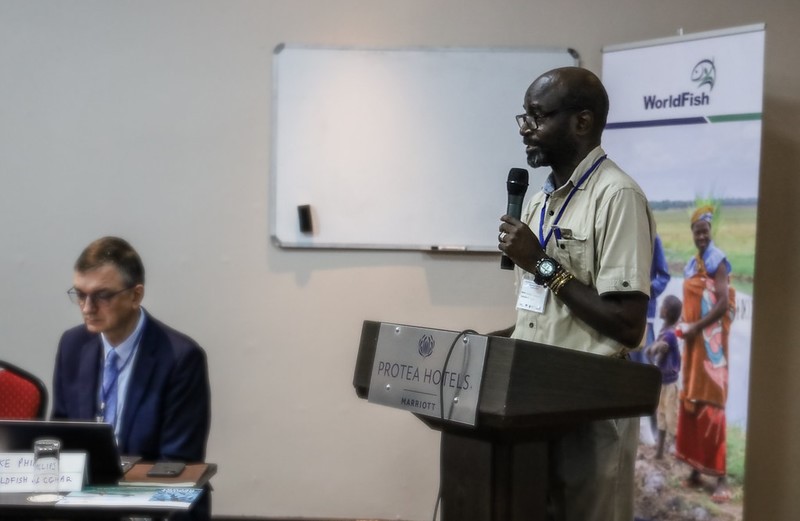
“There is growing knowledge and interest in Zambia and other African countries among multiple stakeholders: government, development agencies, civil society and the private sector regarding the importance of nutrition-sensitive food systems approaches for improving nutrition and health and the role that small fish can play in making diets more nutritious. Concrete interventions, such as pond polyculture to increase fish supply and including fish in school meals to make them tastier and more nutritious must be context-specific and combined efforts by multiple sectors.” - emphasized WorldFish's Global Lead for Nutrition and Value Chains, Dr. Shakuntala Thilsted.
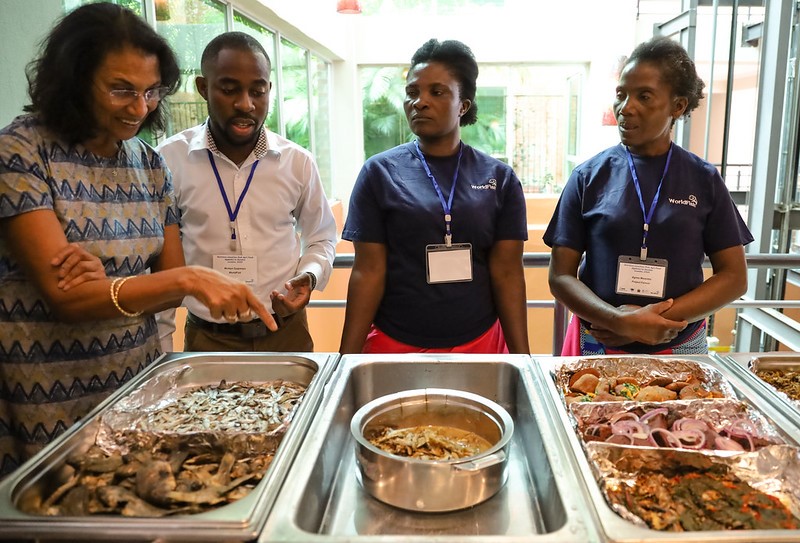
Zambian policymakers, NGOs, and media will need to understand the potential of the fish for improving livelihoods and nutrition, so it was heartening that two of the women farmers from the Luwingu district were present to showcase their local dishes made of dried fish. If anything, this workshop will have refocused participants’ minds on nutritional outcomes being as critical as other sustainability objectives, and extended and enriched the networks of all who attended.
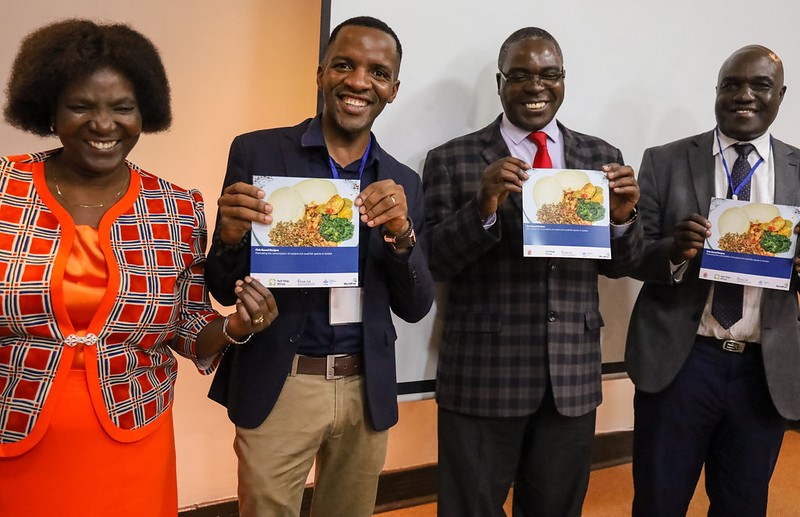
Not surprisingly, donors and NGOs such as FAO, GIZ, JICA and SUN were there to share their best practices and reaffirm the need for food and nutrition security and, mainly, the role of fish and aquatic foods, which has been climbing the list of funding priorities.
“The future is promising for the IFAD and WorldFish collaboration as we move towards agri-food systems in Sub-Saharan Africa. We now need to look back at the innovation and knowledge base created by WorldFish in fisheries and aquaculture, and make it accessible for the private sector development as well as catalyze effective policy and development interventions for improved food value chains at the country level. ” – concluded Malu Ndavi, IFAD’s Head of the Agricultural Research Grants.